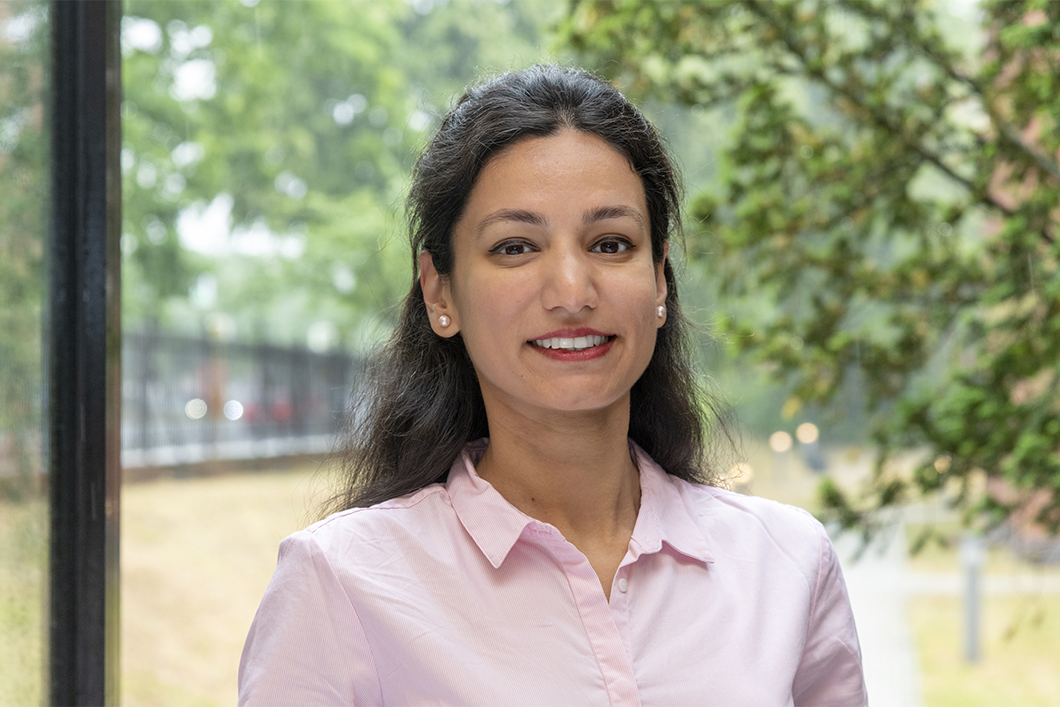
Dr Gurpreet Kaur, former Marie Skłodowska-Curie Postdoctoral Fellow and current guest researcher at BAM’s Chemical and Optical Sensing Division
Source: BAM
Interview series "Introducing People@BAM"
Dr Gurpreet Kaur, former Marie Skłodowska-Curie Postdoctoral Fellow and current guest researcher at BAM's Chemical and Optical Sensing Division
Gurpreet, please tell us a little bit about yourself. What did you do before you came to BAM?
I was born and raised in Delhi, India where I completed my bachelor’s and master’s in Physics at the University of Delhi. It was during my masters that I got a glimpse of material science and nanotechnology research, and I could truly appreciate the charm of interdisciplinary nature of science. So, I embarked on my PhD journey at the same university and what followed was research at the intersection of Physics, Chemistry, Material Science and Nanotechnology. During my PhD, I worked on the development of semiconductor thin films based microfluidic electrochemical and surface plasmon resonance biosensors. Prior to coming to BAM, I spent nearly 2 years working as a postdoc in Lille, France. This was my first experience living abroad and it gave me a deeper insight into European culture and made me so much more independent.
You had received a Marie Skłodowska-Curie Postdoctoral fellowship from 2021 to 2023 and chose BAM’s Chemical and Optical Sensing Division as your host – why?
During my PhD, I came to Germany for a conference and that was my first contact with the research and researchers of BAM’s Chemical and Optical Sensing Division. I was naturally drawn to BAM due to its renowned reputation in materials research and testing. Interdisciplinary research setting with individuals from diverse backgrounds working together was certainly appealing. I could see this division as an environment where I can further develop my expertise and skills. A warm, friendly, and supportive group of coworkers was the icing on the cake. So certainly, it was my first choice when I decided to apply for the Marie Skłodowska-Curie Postdoctoral fellowship.
What is your research about, and what excites you most about this topic?
My research has always revolved around chemical sensors for health and environment protection. I have worked on different techniques such as electrochemistry, electrochemiluminescence, fluorescence spectroscopy, surface plasmon resonance and field effect transistors to develop thin films and nanoparticle based detection platforms. Here at BAM, my project is to develop an electrochemiluminescence microfluidic assay using mesoporous silica nanoparticles based dye delivery system for trace level water contamination detection. I cannot emphasize enough how much the integrative and collaborative character of my research has taught me over the years. Collaborating with colleagues having diverse areas of expertise and stepping beyond my comfort zone to grasp and apply entirely new concepts is an exhilarating experience. Coupled with the opportunity to make a tiny contribution to society, this is what drives and inspires me.
Do you have any role models and, if so, which ones?
My mother is my role model, and her passion to learn has always inspired me. Although she didn’t study natural sciences, but the way she managed to achieve great success in her field with limited resources while also taking care of the household has always amazed me. Everything I have accomplished, including being here for this interview today, I owe to her.
Within the realm of science, I really admire Marie Skłodowska Curie because of her profound impact on the fields of both physics and chemistry, and her perseverance in the face of adversity.
What do you like to do when you’re not doing research?
I'm an avid foodie who loves to savour diverse cuisines, enjoys traveling to explore new destinations and cultures, finds solace in cooking, and balances it all with leisurely walks, board and card games, and spending quality time in nature.
What are your next plans or what's next for you?
The next step is to carry forward the skills and insights I've gained here and build upon this experience into my future roles. The nature of my research here at BAM has opened new avenues for me as a physicist working in sensors. While it will sadden me to bid farewell to BAM, I am equally eager to embrace the opportunities that the future has in store for me.


